Officers and officials who talked a bit too specifically
During World War II, military secrets were closely guarded. Most of the time.
The Office of Censorship received a request from the Joint Chiefs of Staff just after New Year’s, 1944, for a list of “instances which appeared to us to involve serious breaches of security” involving Army and Navy officers and government officials over the previous few months.
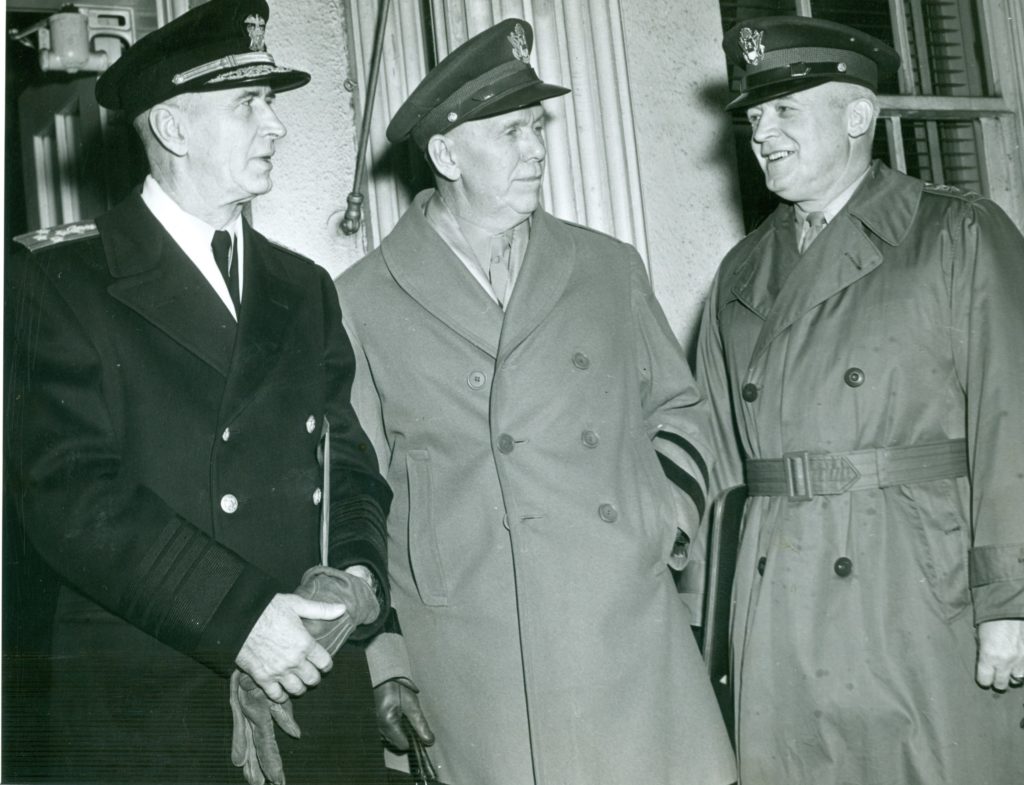
Chairman of the Joint Chiefs of Staff Adm. William Leahy, who requested the report; Gen. George Marshall, Army Chief of Staff; and Gen. “Hap” Arnold, Army Air Forces Chief of Staff, who found his name on the report.
The six-page document was delivered to the four members of the Joint Chiefs by mid-January, accompanied by a letter from Gen. Andrew McFarland, secretary to the Joint Chiefs, stating that the information was for “such action as the Joint Chiefs may wish to take.”
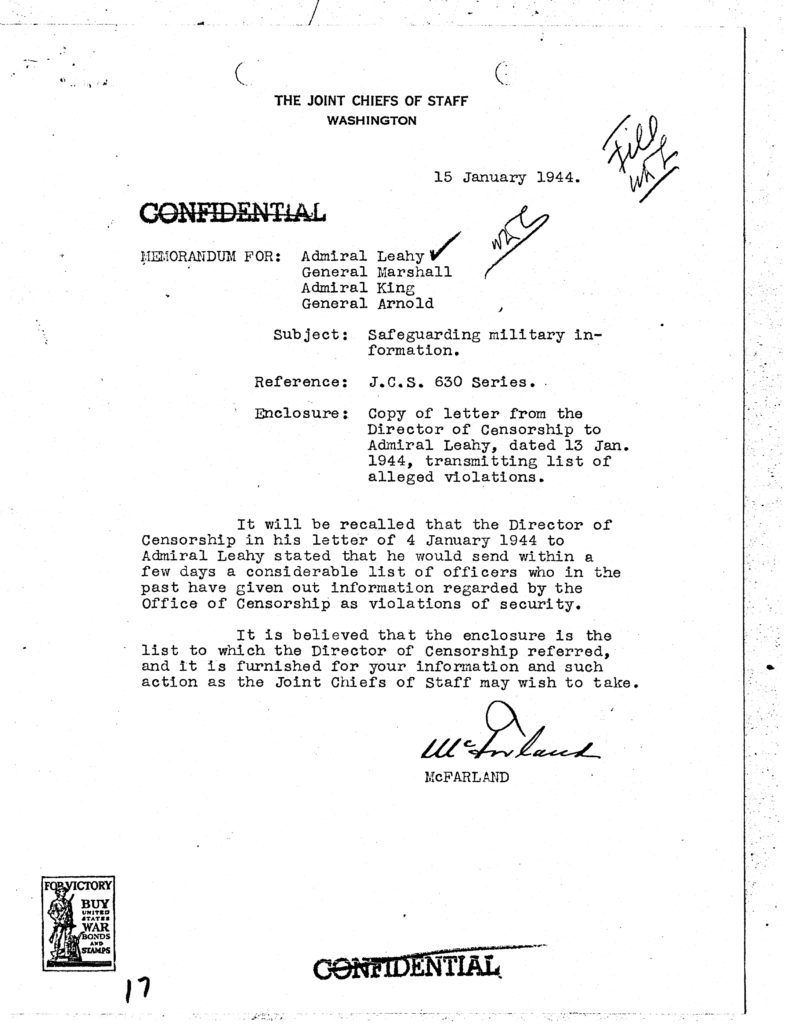
Secretary McFarland letter regarding the breach of security document.
Some of the breaches include discussion about the early use of radar. In April 1943, an official statement was released with “strict orders and understanding nothing will be said regarding its operational use … and employment in specific actions.”
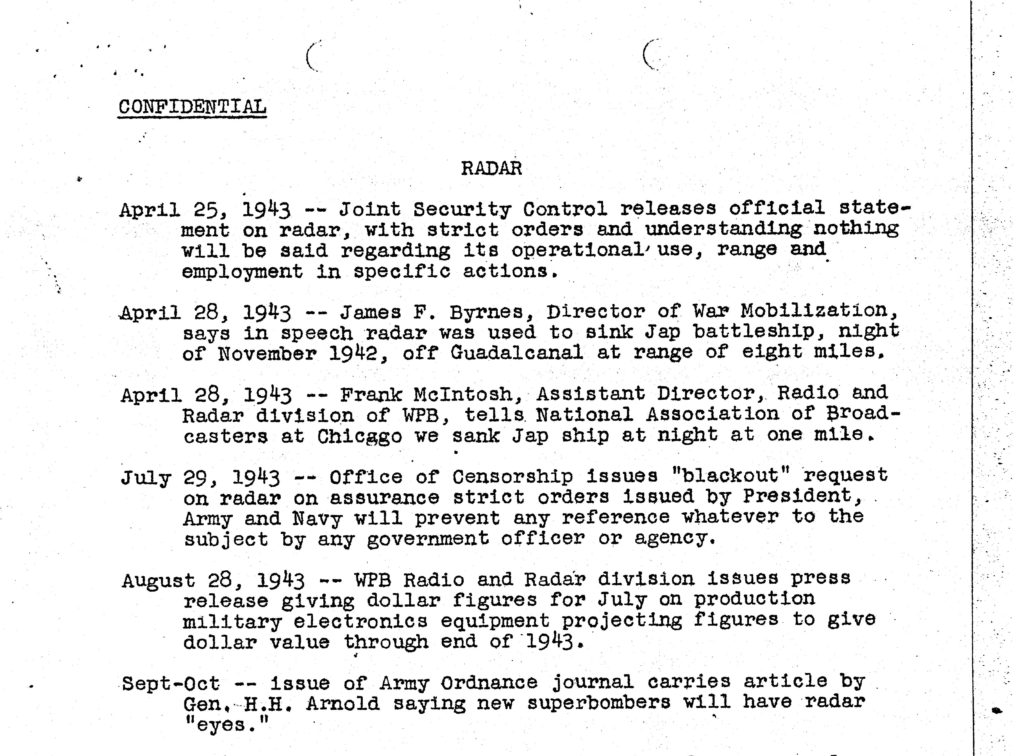
Off-limits talk about radar.
However, just a few days later, James F. Byrnes, director of War Mobilization, gave a speech in which he stated radar was used to sink a Japanese battleship in November 1942, from a distance of eight miles. In July 1943, the Office of Censorship requests a “blackout” on discussing radar accompanied by “strict orders” from the military services to “prevent any reference whatever to the subject.” Yet in the fall the Army Ordnance Journal has an article by Gen. “Hap” Arnold, chief of the Army Air Forces, about new “superbombers with ‘radar eyes.’”
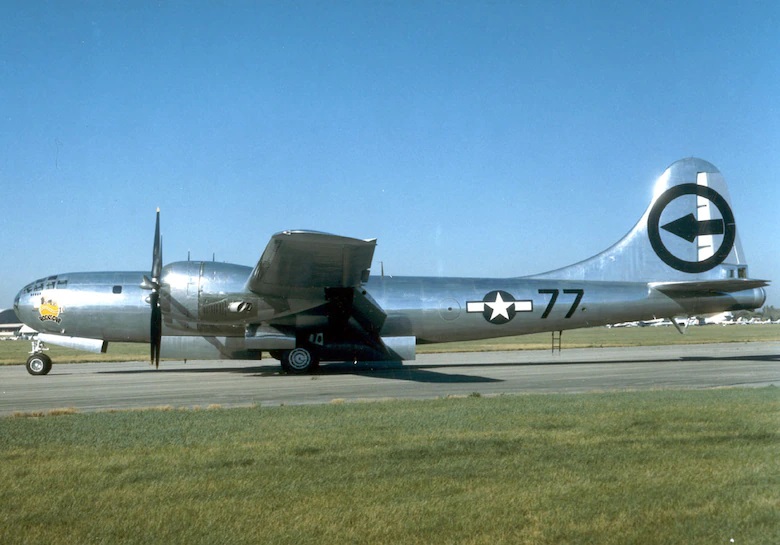
B-29 Superfortress Photo courtesy National Museum of the Air Force
In 1942, the Office of Censorship was informed that the new B-29 was “super secret.” In July 1943, Col. Irving Amberg tells the Akron Beacon-Journal that “seven B-29’s already have been delivered.” In Nov. 1943, Brig. Gen. Ray Harris states that the “new superbomber, more devastating than any now in skies, is now in production in Wichita [KS].”
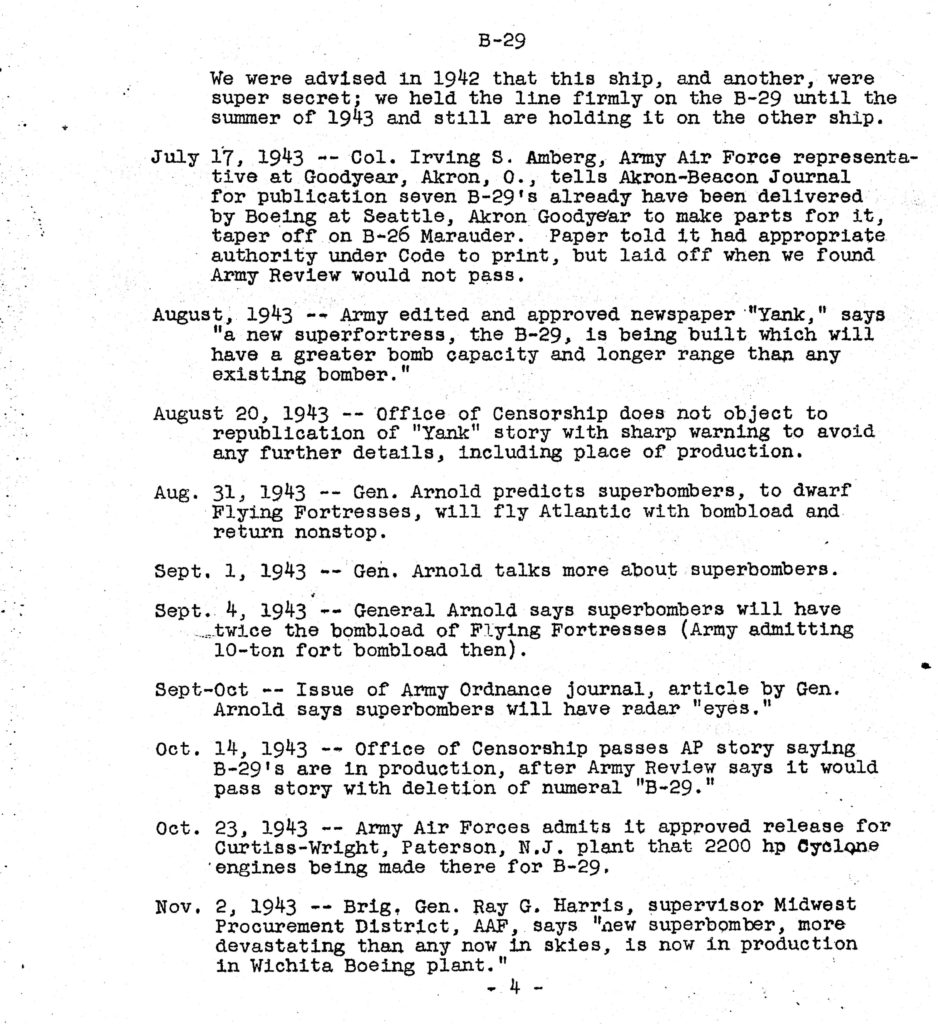
Inappropriate mentions of the new, classified B-29 Superfortress.
Planned military actions were not immune from being discussed inappropriately, either. On Dec. 31, 1943, a publication from the Army Bureau of Public Relations, “Radio Theme and Fact Sheet,” gave a “broad hint that airborne operations will open invasion of Europe.” The publication was withdrawn on request of the Office of Censorship.
In January 1944, Col. Frederick Williamson asked for extra manpower to “move freight accumulating in New York for “European war fronts.’”
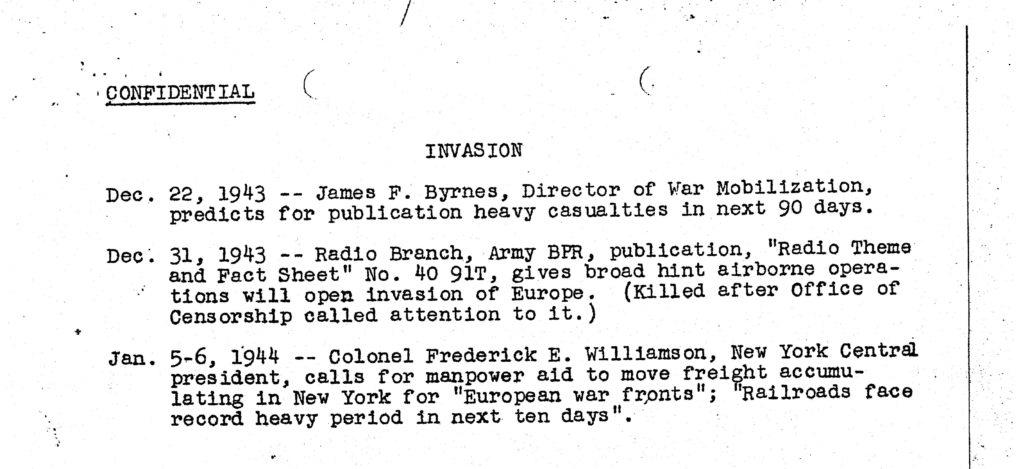
Officials alluding to the upcoming European invasion.
The most egregious episode in this document involved Brig. Gen. T.A. Frazier, who said “in east Tennessee is ‘Clinton Engineer Works, in secret war production of weapon which possibly might be one to end the war.’”

Giving away highly classified information on the Manhattan Project at Oak Ridge, TN.
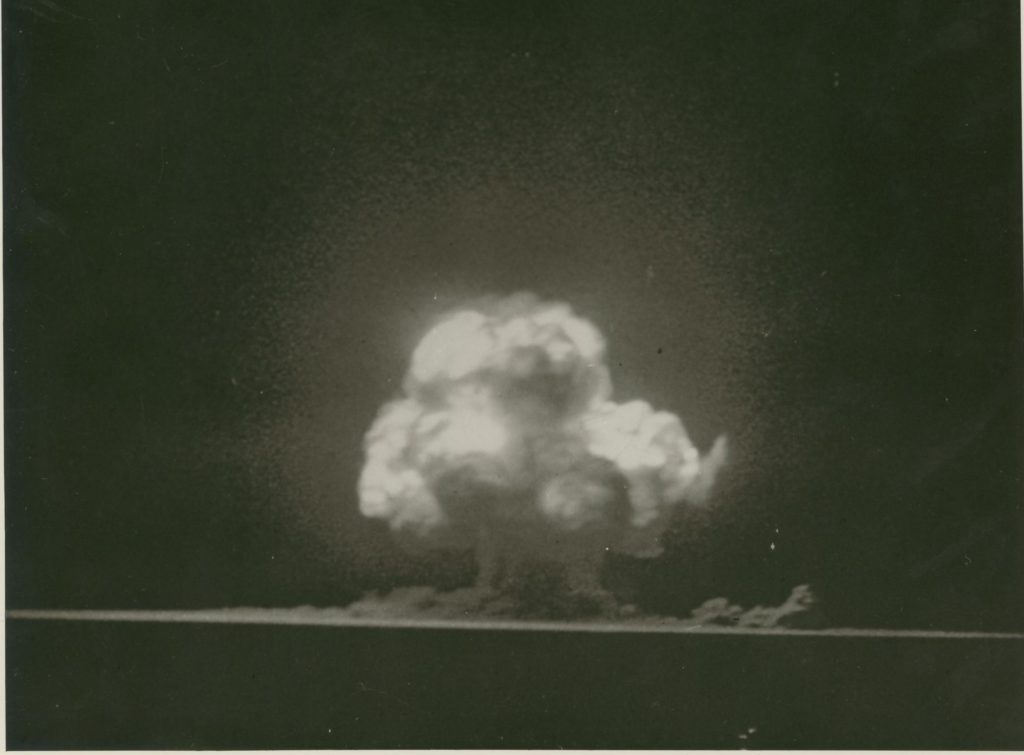
Trinity test, the first atomic bomb explosion, at Los Alamos, N.M., on July 16, 1945.
A document dated December 27, 1943 to President Franklin Roosevelt, unsigned but likely from the Joint Chiefs, discusses “the present relaxation of the Code of War Time Practices … and the announcement by Mr. Byron Price that newspapers or periodicals need pay no attention to the request for suppression of publication of ‘news’ … makes it impossible for us properly to safeguard military information.” The document recommended that Presidential instructions be issued that “information concerning, or speculation upon, the following matters will, under no circumstances, be transmitted, published or broadcast.” These included “secret weapons or equipment,” “current operations or plans for future action,” “movement of troops and ships,” and information about “high level international conferences.”
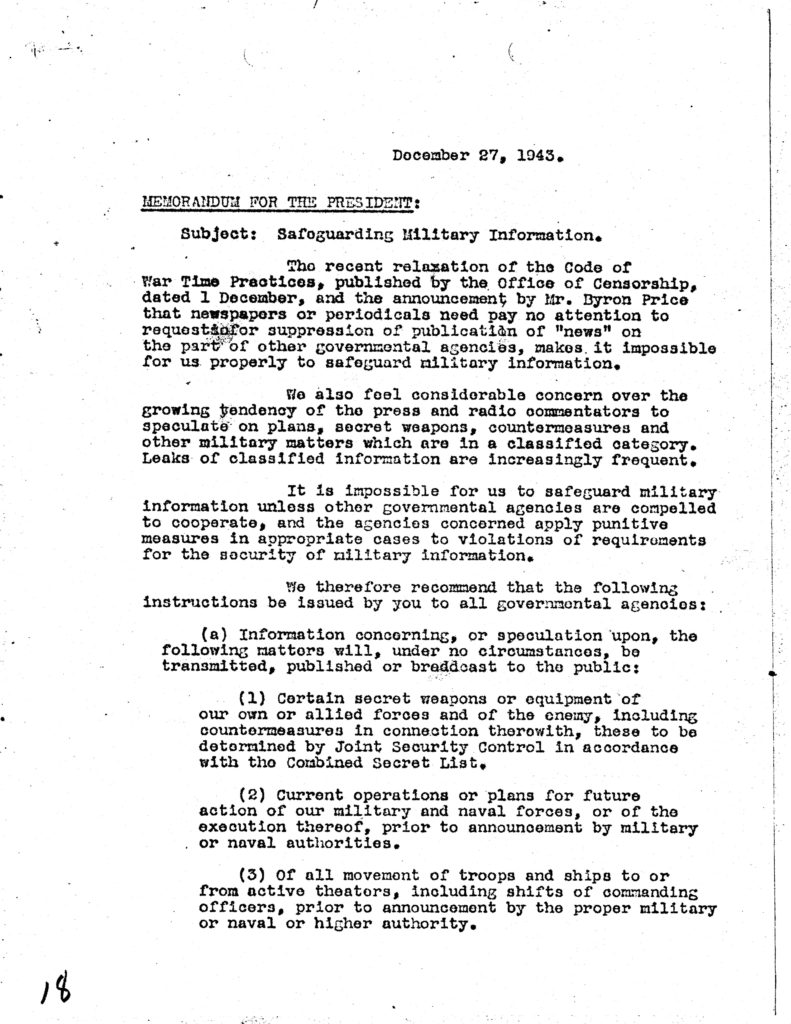
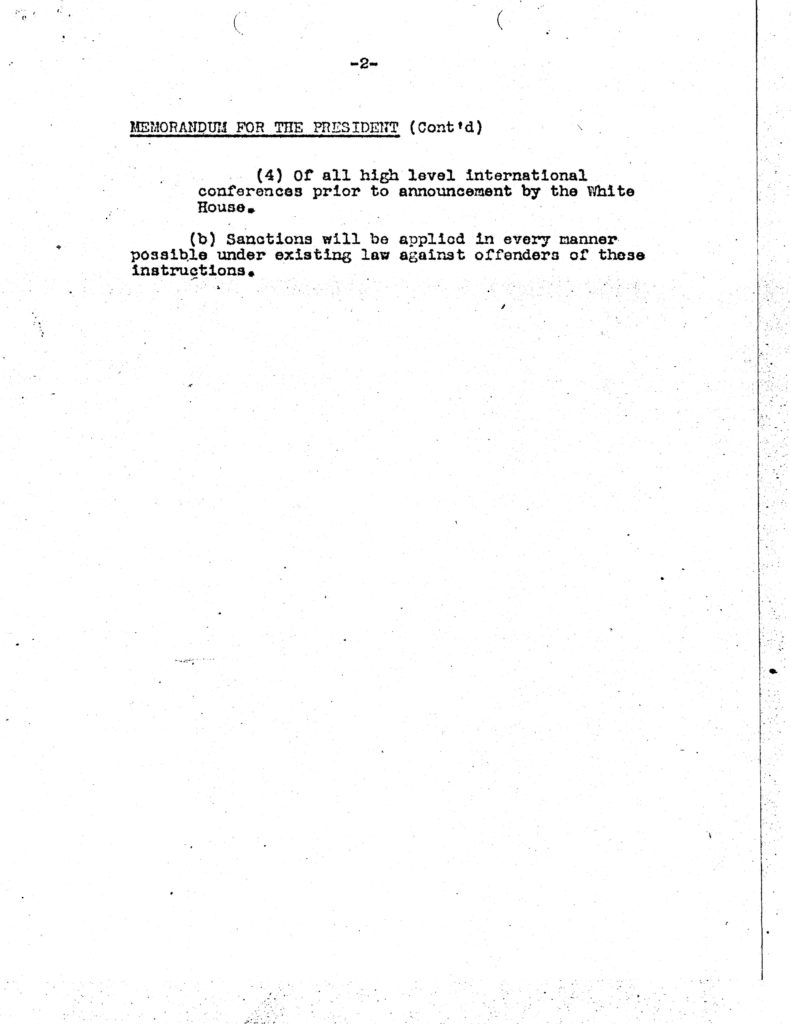
Recommendations for President Franklin Roosevelt regarding the safeguarding of classified information.
It would appear from the security breaches document that many military officers and government officials never learned that “loose lips sink ships.”
Information from VERIFAX 2029 Fleet Admiral William D Leahy Folder 129 Memos to and from the President 1943-44
The Marshall Foundation Library has more than 1 million National Archives documents available for research.
Melissa has been at GCMF since fall 2019, and previously was an academic librarian specializing in history. She and her husband, John, have three grown children, and live in Rockbridge County with three large rescue dogs. Keep up with her @MelissasLibrary.
